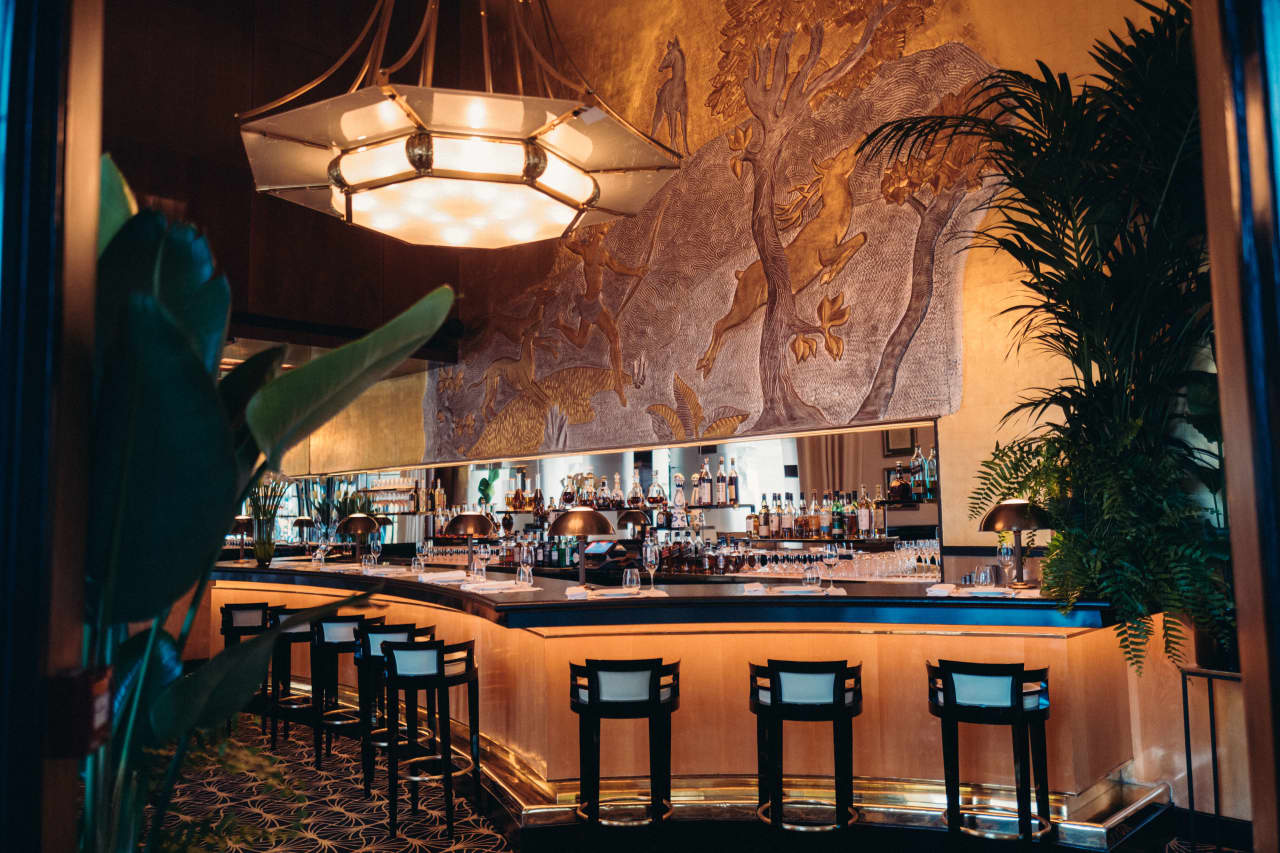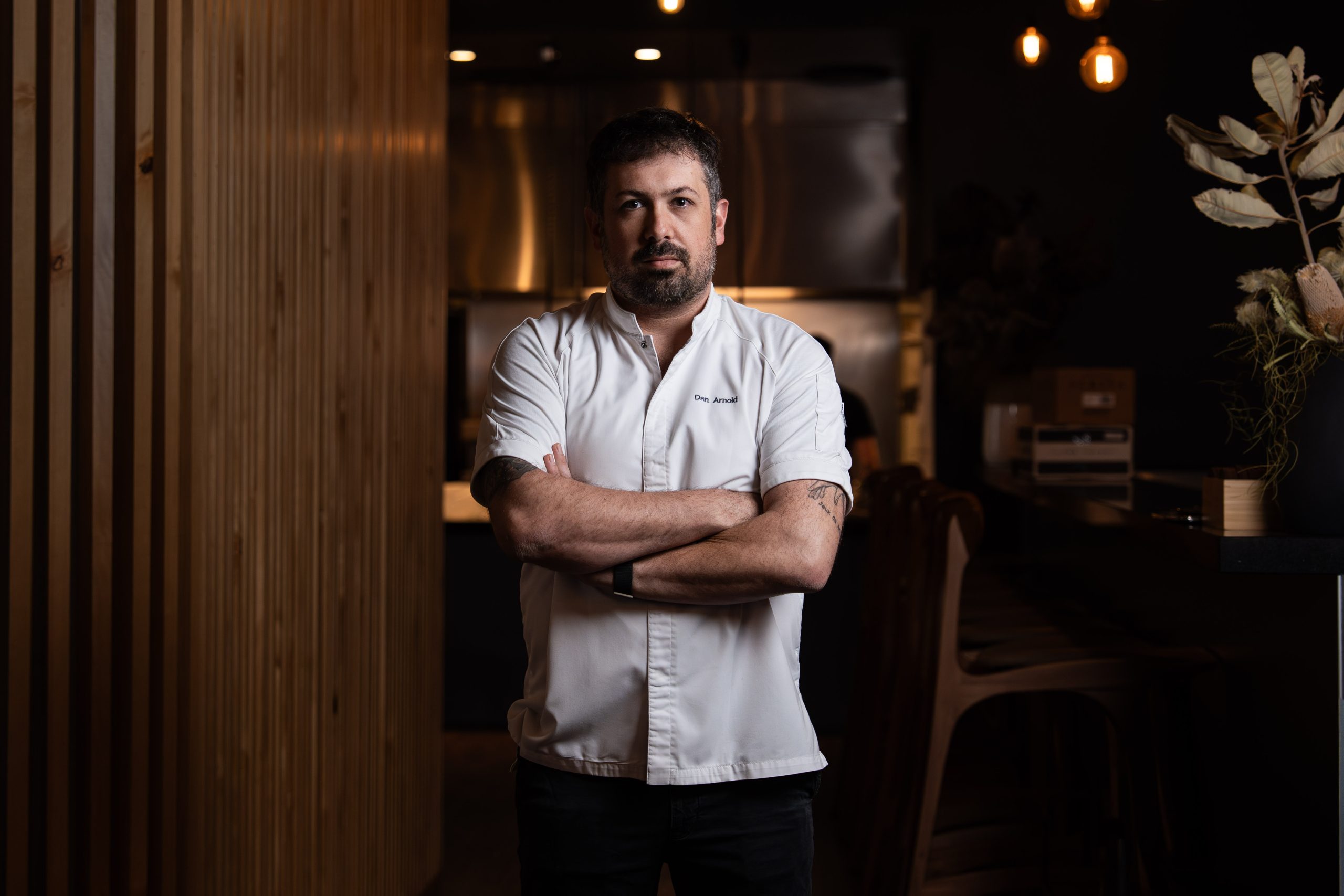Why It’s Easier Than You Think to Score a Coveted Table When Visiting Paris for the Olympics
Savvy travellers who plan their trips around dining at their destination’s most in-demand restaurants know that securing a reservation at a top Paris eatery isn’t an easy proposition on any given day.
Come the Olympics in July, when the city is flooded with tourists, one would expect the jockey sport to snag a table to be that much more intense. But that’s not necessarily shaping up to be the case. As of mid-May, Parisian insiders such as hotel managers, restaurant owners, and local luxury concierges reported that inquiries at sought-after spots were no higher than usual, foretelling a potential opportunity for visitors looking for a fine-dining experience during the games.
The time to book falls over the next few weeks given that many top spots don’t take reservations until one month before the dining date.
The Michelin-starred Jean Imbert Au Plaza Athenee and Le Relais Plaza, both at Hotel Plaza Athenee and helmed by the renowned French chef Jean Imbert, are two examples.
Francois Delahaye, the COO of the Dorchester Collection, a hospitality company that includes the Plaza Athenee and a second Paris property, Le Meurice, says that his regular guests who are visiting for the games and Parisians who frequent the restaurants know not to call too far in advance of when they want to dine.
Further, he doesn’t foresee reservations being a challenge at either venue or at Le Meurice’s two-Michelin-starred Restaurant Le Meurice Alain Ducasse.
“Booking for the restaurants won’t be an issue because people are planning meals at the last minute,” Delahaye says. “Also, the people who are in Paris specifically for the Olympics are here for the games, not to eat at restaurants. They’re not the big-spending clientele that we usually get.”
Delahaye doesn’t expect the kinds of peak crowds that descend on fine dining during Fashion Week each spring and autumn, for example, when trying to land a seat at the three eateries is nearly impossible. “People are fighting to get in,” he says. “You need to book through your hotel’s concierge, have an inside source, or be a hotel or restaurant regular.”
Several Paris luxury concierge companies echoed Delahaye’s perspective
Manuel de Croutte, the founder of Exclusive & Private, says that Paris regulars probably aren’t planning a trip when the Olympics transpire—from July 26 to Aug. 11—because they want to avoid the tourist rush. “We’ve gotten some reservation requests from people who’ve heard about us but not nearly as many as we usually get when the very wealthy travellers are here,” he says.
During peak periods like the French Open or Fashion Week, de Croutte says that his job entails making bookings for travellers who don’t have any other way to get into buzzy or Michelin-starred establishments.
“You’re unlikely to get a table at a see-and-be-seen place without knowing someone,” de Croutte says. “No one picks up the phone or answers email.” He says his team has established relationships with managers and owners of many of the hot spots in Paris and often visits them in person to land tables.
Exclusive & Private’s Black Book of Paris restaurant recommendations for Olympic visitors span a broad range, from casual bistros to fine-dining.
Michelin eateries include the three-star Le Gabriel at La Reserve, the two-star Le Clarence near the Champs-Elysee, and the two-star Le Taillevent.
Spots without a Michelin star but equally notable are also on de Croutte’s list: L’ Ami Jean offers traditional and flavourful southwestern French cuisine, Allard is a brasserie from Alain Ducasse, and Laurent serves French food to a fashionable set.
“My favourite neighbourhood for restaurants is Saint Germain de Pres,” de Croutte says. “You’ll find unassuming but chic names with excellent food and a great vibe. You can book with these places directly if you’re here for the Olympics, but don’t wait until the last minute because they will get filled.”
He also cautions that some Paris eateries are asking for nonrefundable prepayments for reservations during the Olympics.
“Be sure you want to go before committing and ask about the refund policy if you are charged,” he says.
Stephanie Boutet-Fajol, the founder of Sacrebleu Paris, says her bespoke travel company charges a lump sum of about US$750 to make all the restaurant bookings for the Olympic period, though the price varies depending on the dates and the number of restaurants that a client requests. “Reservations around the closing ceremony are harder to come by because that’s when more elite travellers are coming to Paris and want the chic restaurants that are always difficult to get a table at,” she says.
Meanwhile, chefs at some Michelin-starred restaurants share that they have tables available during the Olympics and welcome travelers to their establishments.
Thibaut Spiwack, for one, behind the Michelin-starred Anona, serving modern French cuisine, and the culinary consultant for the popular Netflix series Emily in Paris , says that he is open for reservations.
“My team and I look forward to sharing a culinary experience with new clientele that I hope will remain in their memory,” he says.
Spiwack suggests that travellers check out other worthwhile restaurants where he himself dines. For terrific wine, there’s Lava, and for Italian, he likes Epoca where the pastas are “divine.” Janine is the best bistro in town, and Prima wins for a pizza fix, he says.
“You have a lot of restaurants in Paris to pick from,” Spiwack says. “You just need to determine where you want to go, and book as soon as you can.”
 Copyright 2020, Dow Jones & Company, Inc. All Rights Reserved Worldwide. LEARN MORE
Copyright 2020, Dow Jones & Company, Inc. All Rights Reserved Worldwide. LEARN MORE
A divide has opened in the tech job market between those with artificial-intelligence skills and everyone else.
A 30-metre masterpiece unveiled in Monaco brings Lamborghini’s supercar drama to the high seas, powered by 7,600 horsepower and unmistakable Italian design.
A 30-metre masterpiece unveiled in Monaco brings Lamborghini’s supercar drama to the high seas, powered by 7,600 horsepower and unmistakable Italian design.
When Lamborghini takes to the water, subtlety isn’t on the agenda. Unveiled at the Monaco Yacht Show, the Tecnomar for Lamborghini 101FT is a 30-metre superyacht that fuses Italian automotive theatre with cutting-edge naval engineering.
The model builds on the collaboration that began in 2020 with the Tecnomar for Lamborghini 63, a sell-out success that celebrated the marque’s founding year.
This new flagship pushes the partnership between Automobili Lamborghini and The Italian Sea Group to a grander scale, designed to deliver the same adrenaline rush at sea that drivers expect behind the wheel.
“The Tecnomar for Lamborghini 101FT redefines the concept of nautical luxury,” said Stephan Winkelmann, Chairman and CEO of Automobili Lamborghini.
“It is not only a yacht, but an affirmation of Italian excellence. The Italian Sea Group and Automobili Lamborghini share an exclusive clientele who are passionate about beauty, technology, and extreme performance.”
Design cues are unmistakably Lamborghini. The yacht’s sharp exterior lines echo the Fenomeno supercar revealed at Monterey Car Week, complete with Giallo Crius launch livery and signature Y-shaped lighting.
Inside, the cockpit and lounges mirror the DNA of Sant’Agata supercars through hexagonal motifs, sculptural seating and dramatic contrasts. With accommodation for up to nine guests and three crew cabins, indulgence meets practicality on every deck.
Performance is equally uncompromising. Three MTU 16V 2000 M96L engines and triple surface propellers generate a combined 7,600 horsepower, driving the yacht to 45 knots at full throttle, with a cruising speed of 35 knots. Two 35 kW generators provide additional efficiency and reliability, ensuring the yacht’s power matches its presence.
Mitja Borkert, Lamborghini’s Design Director, said: “With the Tecnomar for Lamborghini 101FT, we aimed to create a product that embodies the main design characteristics of our super sports cars. All the details, from the exterior to the colour, to the interior areas, recall and are inspired by Lamborghini’s DNA.”
Presented in scale at Monaco, the definitive Tecnomar for Lamborghini 101FT is scheduled to hit the water at the end of 2027. For those who demand their indulgence measured not only in metres but in knots, this is Lamborghini’s most extravagant expression yet.
Once a sleepy surf town, Noosa has become Australia’s prestige property hotspot, where multi-million dollar knockdowns, architectural showpieces and record-setting sales are the new normal.
ABC Bullion has launched a pioneering investment product that allows Australians to draw regular cashflow from their precious metal holdings.





























